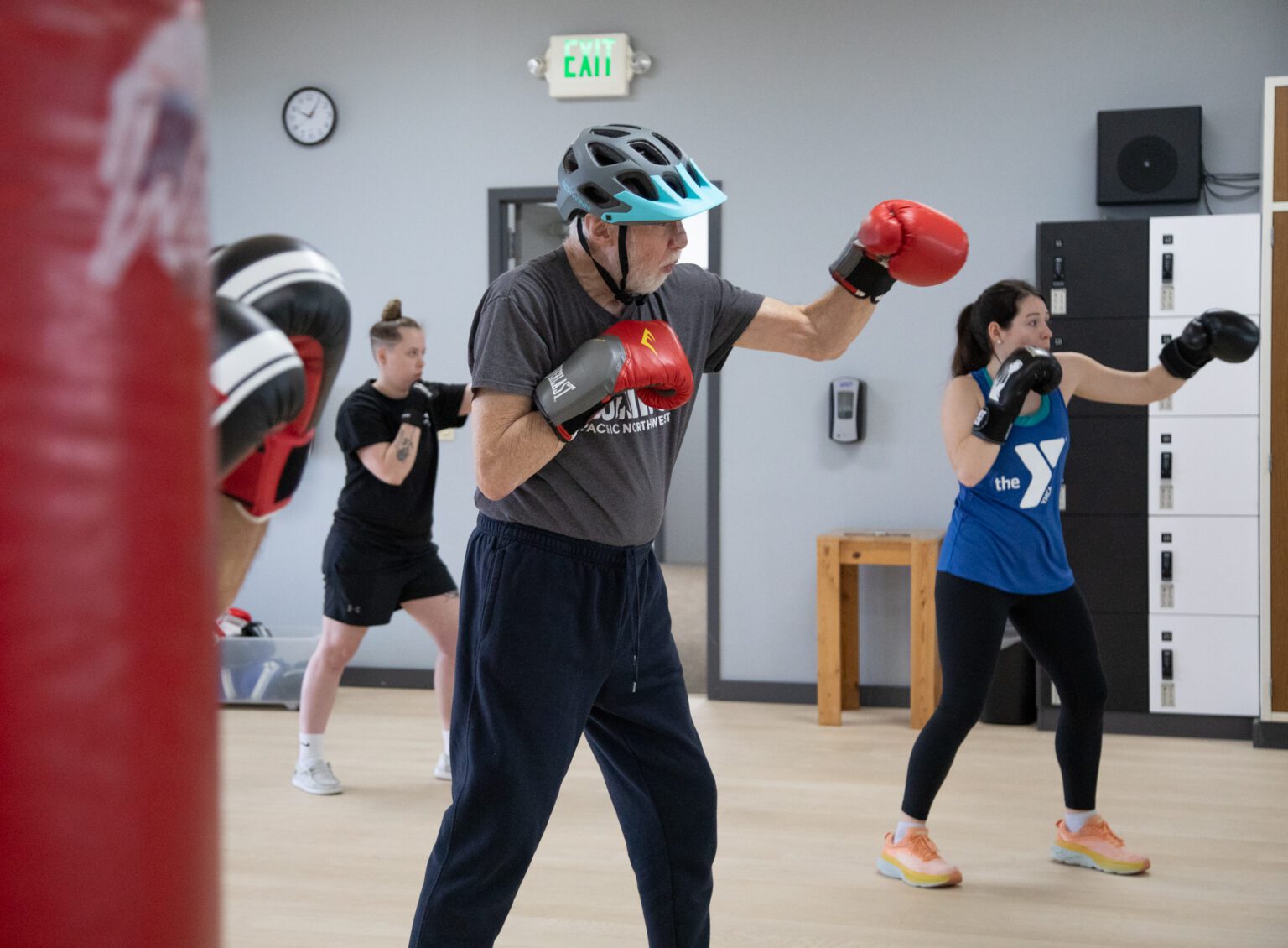Pedaling and punching at Whatcom Family YMCA helps people with Parkinson’s disease fight back against their symptoms. Morning classes five days a week are offered to work on strength, mobility and balance by pedaling on stationary bikes or beating up a punching bag.
Parkinson’s disease is a neurological disorder that primarily affects dopamine-producing neurons and can cause tremors, stiffness and imbalance. There is no cure for the disease and the cause remains largely unknown.
“Research has shown that pedaling at a high cadence can help reduce the neurological symptoms associated with Parkinson’s by 35 percent,” said Kerrie Inman, instructor of the Pedaling for Parkinson’s and Rock Steady Boxing classes.
Val Markus, who lives with Parkinson’s, has been pedaling for five years and boxing since February. She has made exercise a priority.
“They think [exercise] is as important as the medications available at slowing the progressions,” she said.
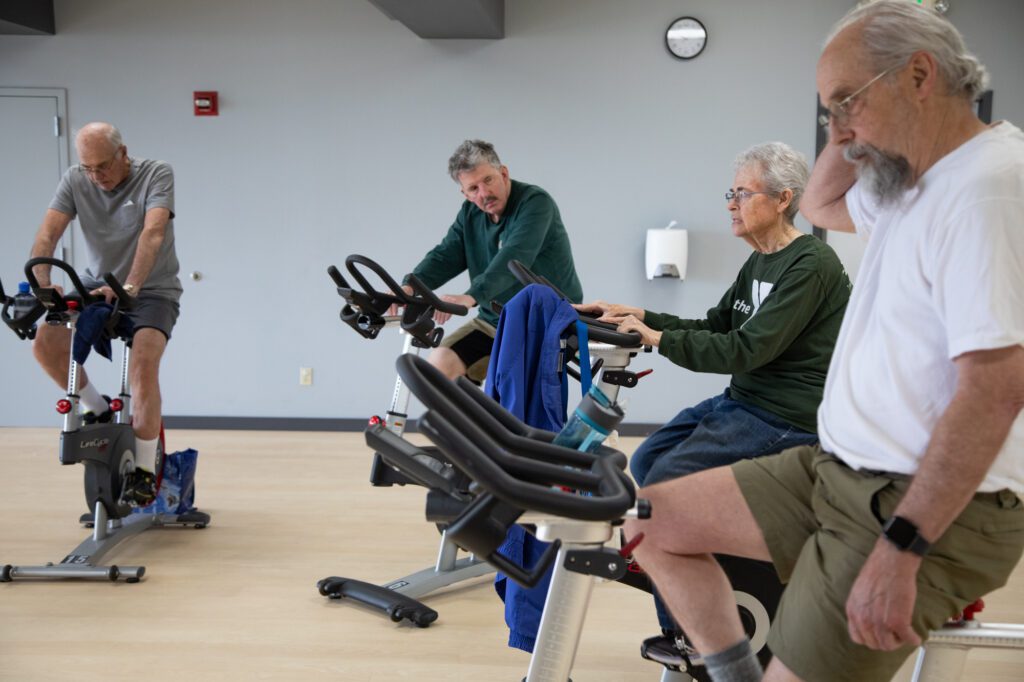
Before students join classes, Inman meets with them to learn their activity level and any accommodations they may want or need. Ages of the students range between late 50s to early 80s, Inman said.
During the Rock Steady Boxing classes on Tuesdays and Thursdays, students rotate through different activities like weights, balance and, of course, punching.
Each station is equipped with a chair in case the students would prefer to do the motions while sitting down. Students are asked to solve math equations while pedaling and practice their spelling while balancing on one leg. Like physical exercise, mental stimulation is important to slow the progression of Parkinsons.
“I’m just fighting it,” said Jerry Wilson, who comes to the YMCA classes five times a week. “It helps my balance and makes me stronger. If I fall, I can catch myself.”
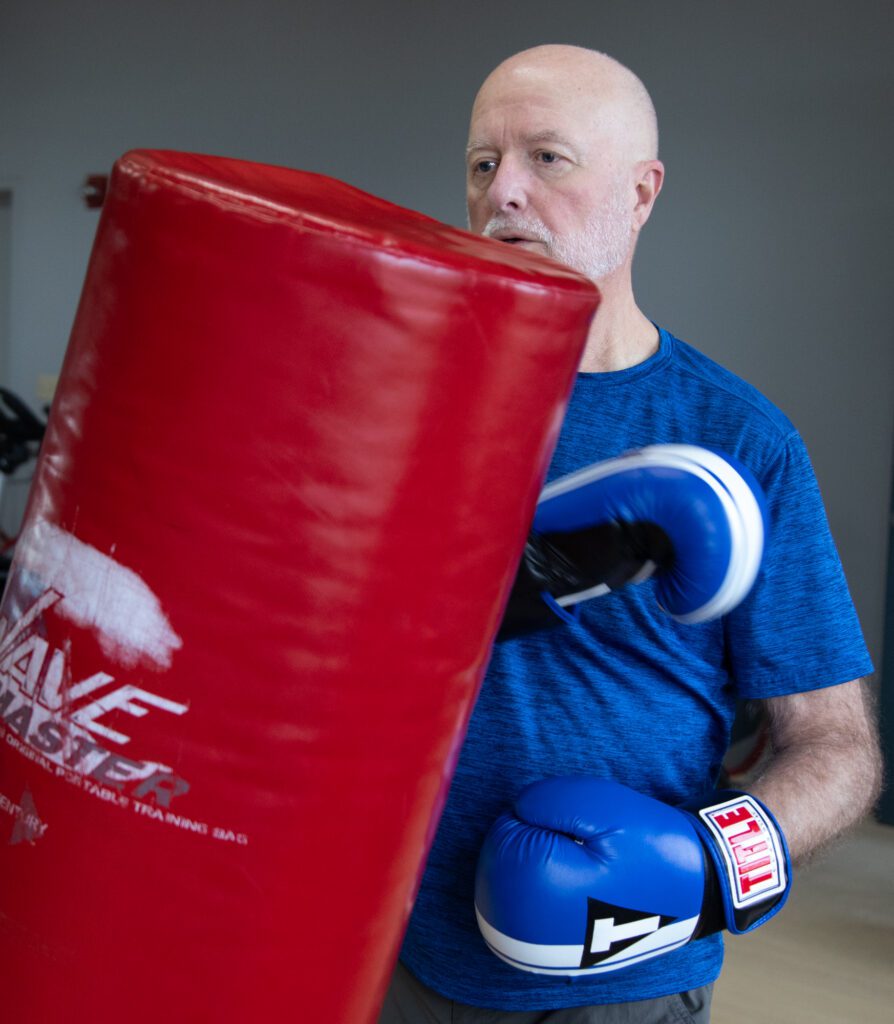
The disease can also cause non-motor symptoms such as depression, anxiety and even the loss of smell.
This was the first symptom of Parkinson’s that Matt McGarry, a student of both classes, noticed. He thought his loss of smell was caused by an industrial accident from working as a mining engineer. But when he began feeling a shake on the left side of his body, he realized these weren’t normal parts of aging. McGarry was diagnosed with Parkinson’s in September 2023.
“If somebody hits you hard, you don’t cave, you back up and you hit them hard back and see how they like that,” McGarry said, a mentality he learned from his taekwondo training. “That’s how I feel about Parkinson’s. It may have hit me but I’m not gonna give up. I’m gonna hit hard back and I’m gonna fight with muscle.”
Jeffrey Kaplan, another student of the classes, has been doing Rock Steady Boxing (RSB) since he was diagnosed 10 years ago at age 70. While he cannot say whether it slows down his symptoms, “every day after my RSB or [Pedaling for Parkinson’s] class, I rest then get up with energy. I can function, do things,” he said in an email.
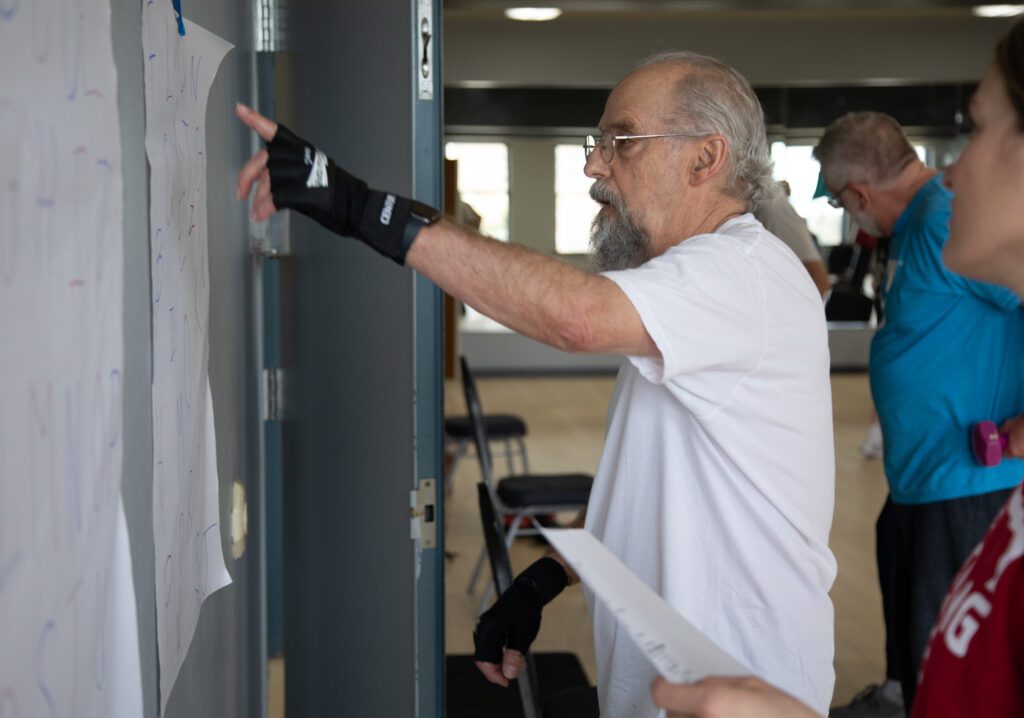
Parkinson’s has affected Kaplan’s speech, making it low in volume and sometimes sounding slurred, he said. It has also made him very “tippy” which has resulted in him becoming an “expert faller,” he said.
Kaplan said the most important part of the classes is the regularity, the strenuous workouts and the instructors leading them. He said instructors don’t need to have technical skill, they just need to be caring people.
“The good — great — ones are good active listeners and are relentlessly cheerful,” Kaplan said.
Students said that a big part of the benefit to the class is the community they feel being around others going through the same thing. Markus said they get recommendations from each other and share tactics that have worked well for them.
“You can freely talk about your issues,” Markus said of the classes.
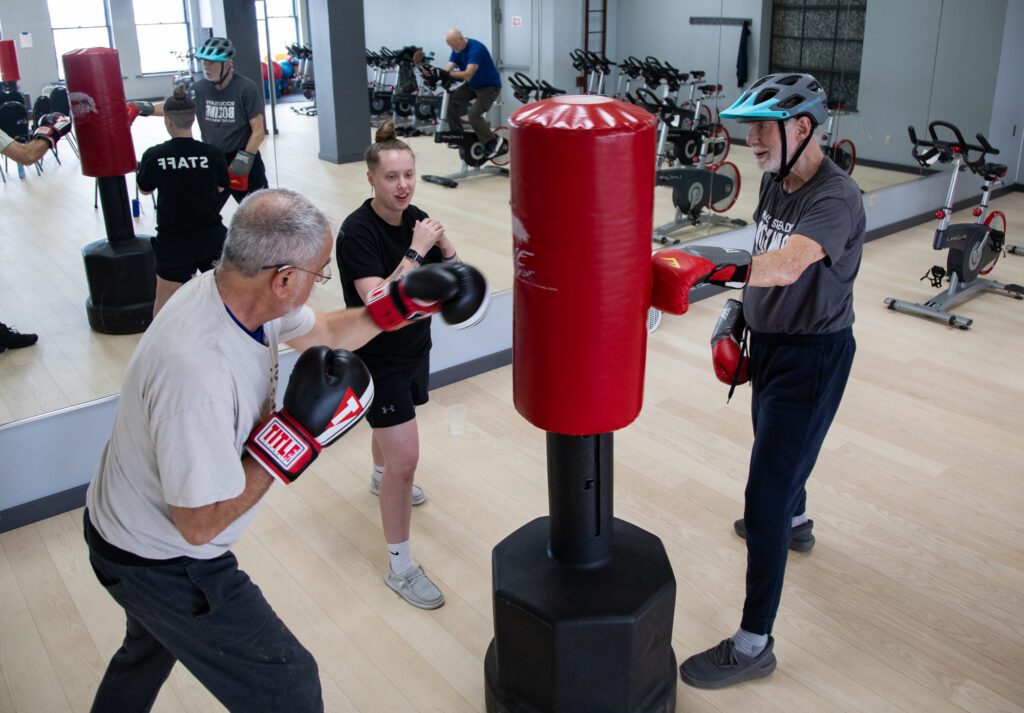
Pedaling for Parkinson’s classes are offered every Monday, Wednesday and Friday from 9:45—10:45 a.m. Rock Steady Boxing is offered every Tuesday and Thursday at the same time. Pedaling classes are free for those with a YMCA membership. Prices for the Rock Steady Boxing classes can be found on the YMCA’s website.
“Financial assistance is always available for our participants,” Inman said. Inman oversees registration for the classes and can be contacted at kinman@whatcomymca.org.

